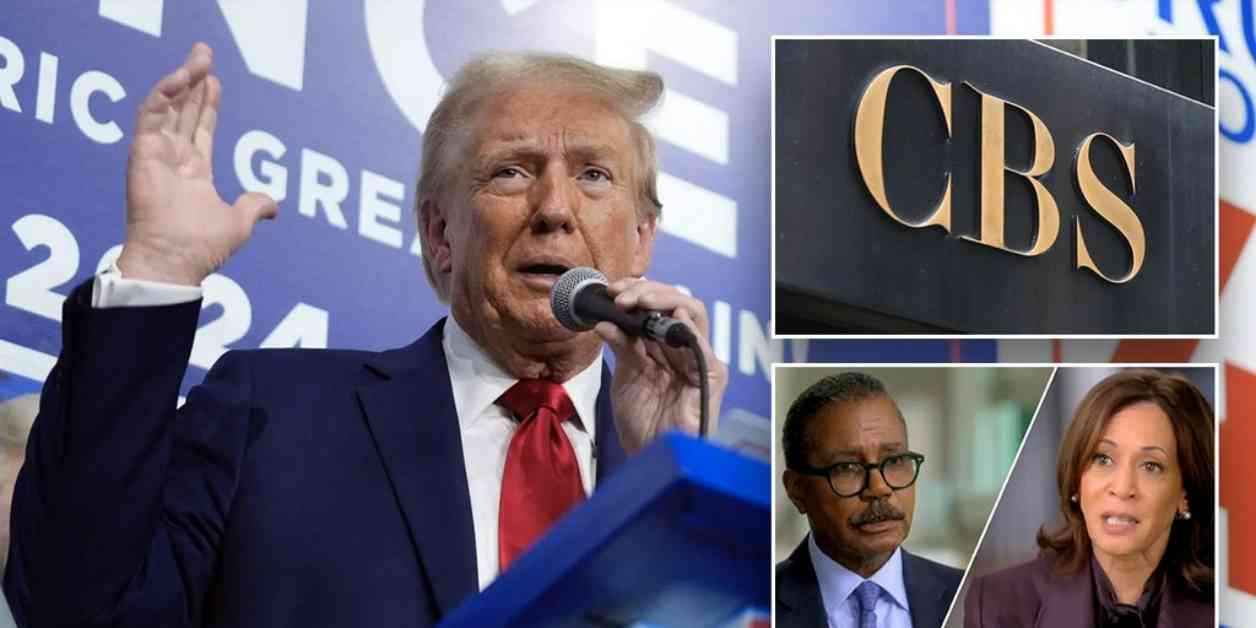President Trump’s legal team has recently expanded its lawsuit against CBS News following the release of the unedited transcript and raw footage of its “60 Minutes” interview with then-Vice President Kamala Harris. This move comes after Trump’s legal team reviewed a late-Friday filing adding CBS News’ parent company Paramount Global as a defendant, as well as Rep. Ronny Jackson, R-Texas, as a plaintiff. The amended complaint states that Jackson has been injured by the conduct of the defendants due to his consumption of broadcast and digital news media content, including that from CBS News.
The lawsuit was amended to include multiple excerpts from the unedited transcript, with Trump’s attorneys hoping to strengthen their case that CBS News withheld unfavorable exchanges to benefit the Democratic nominee. The filing alleges that CBS News engaged in broadcast distortion and manipulation by withholding certain parts of the interview. For example, the unedited transcript reveals an exchange between Bill Whitaker and Harris regarding border crossings during the Biden administration, where Harris provided what was characterized as a “word salad answer” by Trump’s attorneys.
In response to the release of the raw transcript, Trump’s FCC chair Brendan Carr ordered CBS News to provide the unedited version as part of an investigation into potential violations of the FCC’s “news distortion” policy. In light of this development, Carr expressed confusion over CBS News’ actions, highlighting the contrast between the immediate release of one transcript and the months-long refusal to release another.
Critics accused CBS News of editing Harris’ responses to protect her from backlash, calling for the full transcript to be released. CBS initially declined to share the raw transcript but eventually did so in response to FCC inquiries. The lawsuit filed by Trump against CBS News has alleged election interference, claiming that the network’s editing was intended to bolster the Democratic Party’s image in the lead-up to the 2024 Presidential Election.
The FCC’s review of the situation has prompted a public commenting period, with Carr emphasizing the importance of transparency in this matter. The lawsuit, which seeks $10 billion in damages, has raised questions about potential settlements between Paramount Global and Trump to avoid FCC repercussions that could impact an upcoming merger with Skydance Media. Shari Redstone, Paramount’s controlling shareholder, is reportedly in favor of settling with the president.
In conclusion, the legal battle between Trump and CBS News continues to unfold, with allegations of election interference, news distortion, and manipulation at the center of the dispute. The release of the unedited transcript has shed light on the contentious interview and raised broader questions about media ethics and transparency in reporting. As the case progresses, the implications for both parties and the media landscape remain to be seen.


